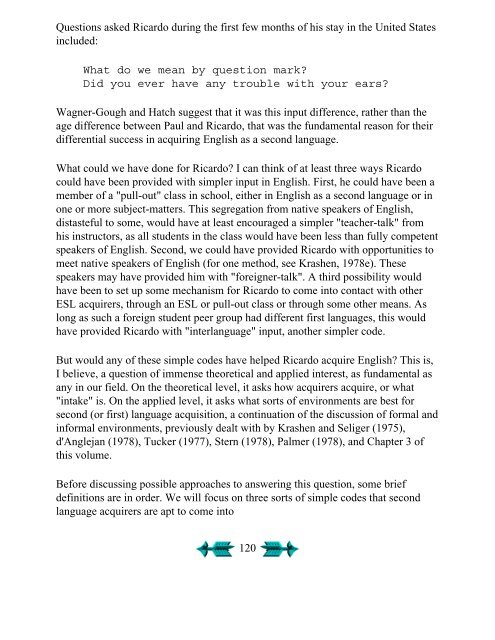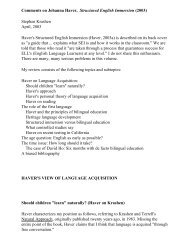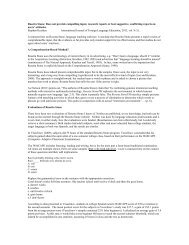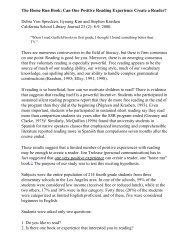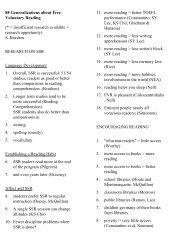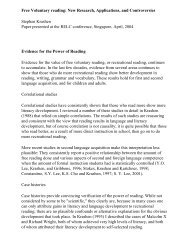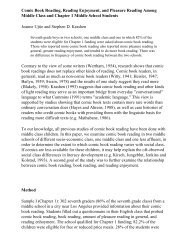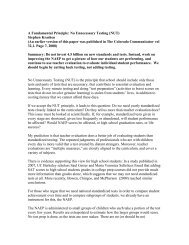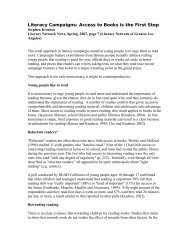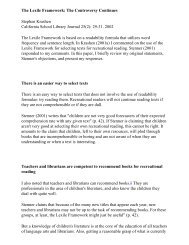Second Language Acquisition and Second ... - Stephen Krashen
Second Language Acquisition and Second ... - Stephen Krashen
Second Language Acquisition and Second ... - Stephen Krashen
Create successful ePaper yourself
Turn your PDF publications into a flip-book with our unique Google optimized e-Paper software.
Questions asked Ricardo during the first few months of his stay in the United States<br />
included:<br />
What do we mean by question mark?<br />
Did you ever have any trouble with your ears?<br />
Wagner-Gough <strong>and</strong> Hatch suggest that it was this input difference, rather than the<br />
age difference between Paul <strong>and</strong> Ricardo, that was the fundamental reason for their<br />
differential success in acquiring English as a second language.<br />
What could we have done for Ricardo? I can think of at least three ways Ricardo<br />
could have been provided with simpler input in English. First, he could have been a<br />
member of a "pull-out" class in school, either in English as a second language or in<br />
one or more subject-matters. This segregation from native speakers of English,<br />
distasteful to some, would have at least encouraged a simpler "teacher-talk" from<br />
his instructors, as all students in the class would have been less than fully competent<br />
speakers of English. <strong>Second</strong>, we could have provided Ricardo with opportunities to<br />
meet native speakers of English (for one method, see <strong>Krashen</strong>, 1978e). These<br />
speakers may have provided him with "foreigner-talk". A third possibility would<br />
have been to set up some mechanism for Ricardo to come into contact with other<br />
ESL acquirers, through an ESL or pull-out class or through some other means. As<br />
long as such a foreign student peer group had different first languages, this would<br />
have provided Ricardo with "interlanguage" input, another simpler code.<br />
But would any of these simple codes have helped Ricardo acquire English? This is,<br />
I believe, a question of immense theoretical <strong>and</strong> applied interest, as fundamental as<br />
any in our field. On the theoretical level, it asks how acquirers acquire, or what<br />
"intake" is. On the applied level, it asks what sorts of environments are best for<br />
second (or first) language acquisition, a continuation of the discussion of formal <strong>and</strong><br />
informal environments, previously dealt with by <strong>Krashen</strong> <strong>and</strong> Seliger (1975),<br />
d'Anglejan (1978), Tucker (1977), Stern (1978), Palmer (1978), <strong>and</strong> Chapter 3 of<br />
this volume.<br />
Before discussing possible approaches to answering this question, some brief<br />
definitions are in order. We will focus on three sorts of simple codes that second<br />
language acquirers are apt to come into<br />
120


